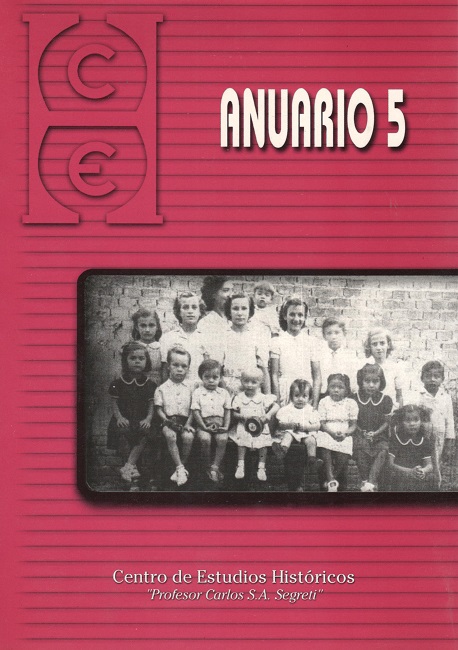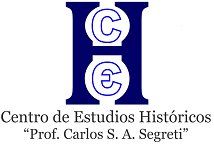Writings and readings through elementary education. Buenos Aires 1800/1860
DOI:
https://doi.org/10.52885/2683-9164.v.n5.23243Keywords:
elementary education, writing, readingAbstract
The elementary education is approached here through the analysis of the reading and writing learning in Buenos Aires during the first half of the XIX century. With this purpose is carried out an exam of the contents, strategies and some of the activities unwrapped by the students of the male schools of the city of Buenos Aires and their campaign among 1800 and 1860. As fruit of the analysis variations in the character and the perceptions generated on the first letters are suggested. By way of hypothesis it is suggested that some particularities of the first letters of principles of the XIX century were altered toward 1860. This rénovation -itself significant- was not an independentproduct of changes in the technological level, but rather it was a traffic accompanied by modifications in the institutional sphere. More specifically, the renovated state profile toward halffilled of the XIX century would have been linked with the alterations perceived in the environment of the first letters.
Downloads
References
BRASLAVSKY Berta, “Para una historia de la pedagogía de la lectura en la Argentina ¿Cómo se enseñó a leer desde 1810 hasta 1830?, CUCUZZA Héctor Rubén (dir.), PINEAU Pablo (codir.), Para una historia de la enseñanza de la lectura y escritura en Argentina. Del catecismo colonial a la Razón de Mi Vida, Buenos Aires, Miño y Dávila – Universidad Nacional e Luján, 2002.
BUSTAMANTE VISMARA, Escuelas de primeras letras en la campaña de Buenos Aires, primera mitad del siglo XIX, Buenos Aires, Tesis de Maestría en historia, Universidad Torcuato Di Tella, 2004.
CASTILLO Antonio (comp.), Escribir y leer en el siglo de Cervantes. Con prólogo de Armando Petrucci, Barcelona, Gedisa, 1999.
DUSSEL Inés, CARUSO Marcelo, La invención del aula. Una genealogía de las formas de enseñar, Buenos Aires, Santillana, 1999.
MALLEIÉ Augusto (comp.), La revolución de Mayo a través de los impresos de la época. Tomo III, 1809-1810, Buenos Aires, Comisión Nacional Ejecutiva del 150° Aniversario de la Revolución de Mayo, 1966.
MALLIÉ Augusto E. (comp.), La revolución de Mayo a través de tos impresos de la época. Primera serie, 1809-1815, Tomo IV, 1810-1812, Buenos Aires, Comisión Nacional Ejecutiva del 150° Aniversario de la Revolución de Mayo, 1966.
MUNCK Thomas, Historia social de la Ilustración, Barcelona, Crítica, 2001.
NARODOWSKI Mariano, “La expansión del sistema lancasteriano. El caso de Buenos Aires, Anuario IEHS, Tandil, núm. 9, 1994.
NEWLAND Carlos, Buenos Aires no es pampa: la educación elemental porteña 1820-1860, Buenos Aires, Grupo Editor de Latinoamérica, 1992.
PETRUCCI Armando, La ciencia de la escritura. Primera lección de paleografía, Buenos Aires, Fondo de Cultura Económica, 2003.
ROLDAN VERA Eugenia, The British Book Trade and Spanish American Independence. Education and Knoweledge Transmission in Transcontinental Perspective, Cornawall, Ashgate, 2003.
SUÁREZ DE LA TORRE Laura Beatriz (coord.), CASTRO Miguel Ángel (ed.), Empresa y Cultura en tinta y papel (1800-1860), Instituto de Investigaciones Dr. José María Luis Mora-Universidad Nacional Autónoma de México, 2001.
TANCK Dorothy, “La enseñanza de la lectura y de la escritura en la Nueva España, 1700-1821”, GONZALBO AIZPURU (comp.), historia de la lectura en México, El Colegio de México, México, 1988.
VIÑAO GRAFO Antonio, “Alfabetización y primeras letras (siglos XVI-XVII)”, CASTILLO Antonio (comp.), Escribir y leer en el siglo de Cervantes. Con prólogo de Armando Petrucci, Barcelona, Gedisa, 1999.
Downloads
Published
Issue
Section
License
Aquellos autores/as que tengan publicaciones con esta revista, aceptan los términos siguientes:
- Los autores/as conservarán sus derechos de autor y garantizarán a la revista el derecho de primera publicación de su obra, el cuál estará simultáneamente sujeto a una Licencia de reconocimiento de Creative Commons. Se puede compartir, copiar, distribuir, ejecutar y comunicar públicamente la obra, siempre que: a) se cite la autoría y la fuente original de su publicación (revista, editorial y URL de la obra); b) no se use para fines comerciales; c) no se altere, transforme o genere una obra derivada a partir de esta obra.
- Los autores/as podrán adoptar otros acuerdos de licencia no exclusiva de distribución de la versión de la obra publicada (p. ej.: depositarla en un archivo telemático institucional o publicarla en un volumen monográfico) siempre que se indique la publicación inicial en esta revista.
- Se permite y recomienda a los autores/as difundir su obra a través de Internet (p. ej.: en archivos telemáticos institucionales o en su página web) después del proceso de publicación, lo cual puede producir intercambios interesantes y aumentar las citas de la obra publicada. (Véase El efecto del acceso abierto).









